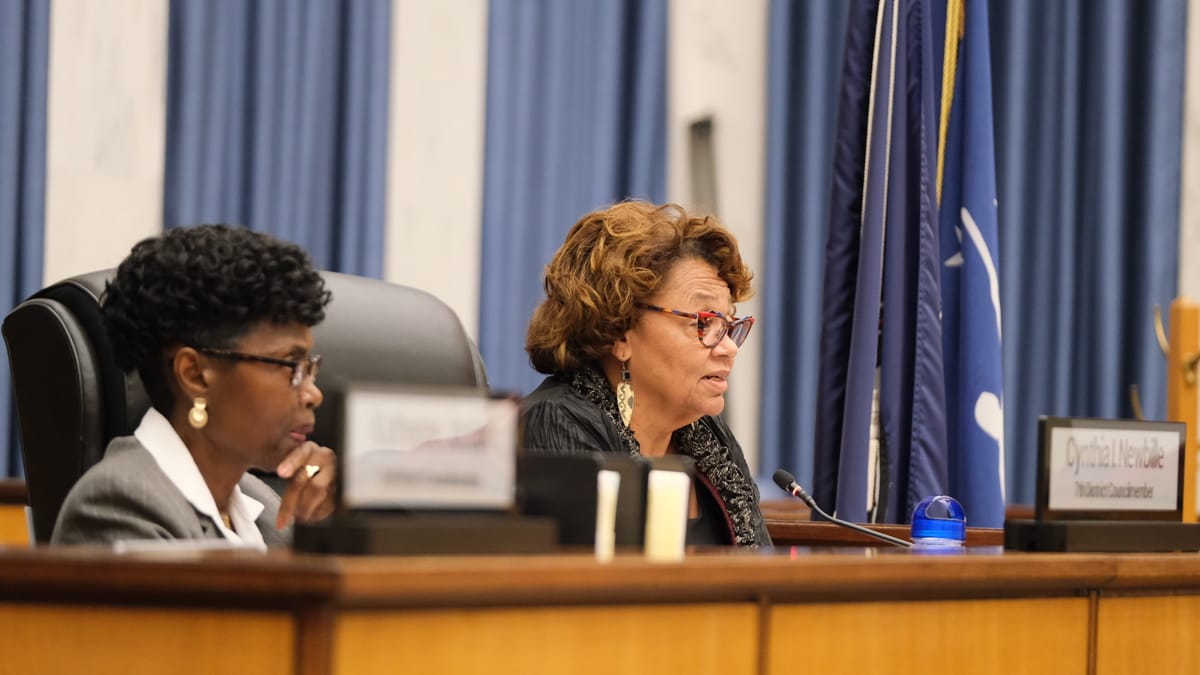Council indicates it might need another delay on tax rate decision

The deep dive on taxes the Richmond City Council planned for Thursday apparently wasn’t deep enough.
After another round of debate over whether the city can or can’t afford to reduce the real estate tax rate by 4 cents — from $1.20 per $100 of assessed value to $1.16 — the council gave little indication Thursday whether it will adopt a lower rate or leave it as is.
And council members said they’re probably not going to be ready to decide by Oct. 15, the next time the two competing ordinances are on the agenda.
That means the vote may not happen until Oct. 28, a week before Election Day when several council incumbents are hoping to fend off challengers trying to unseat them.
“I just want councilors to be mindful that we have to make a decision,” Council President Kristen Nye (4th District) said as the conversation started to drift at Thursday’s meeting of the Finance and Economic Development Committee.
The committee voted to send the two tax ordinances to the full council with no recommendation.
The city has to take a public vote on the tax rate soon because of a state law meant to keep property tax bills stable and avoid big increases in bills when property assessments spike.
This year, the total value of Richmond property went up 6.68% in new assessment notices that went out last month. That was well above the 1% threshold that requires the city to consider lowering the rate to shield its residents from unanticipated tax increases.
Councilor Reva Trammell (8th District) appears to have at least two other votes for her plan to lower the rate to $1.16, a proposal that has led to heated debate over whether the city should give taxpayers a break or take in as much revenue as it can to fund pressing city priorities.
Trammell has characterized the rate reduction as a straightforward step the city could take to try to address Richmond’s housing affordability issues and keep property tax bills manageable.
Mayor Levar Stoney’s administration has strongly opposed the idea, offering up an alternative proposal to send property owners one-time rebate checks instead of permanently lowering the rate. The administration also floated a pair of new housing relief programs targeted toward low-income homeowners and renters as well as older and disabled residents.
The rebate checks would be worth about $150 for the average homeowner, but would be higher or lower based on whether the recipient's home is worth more or less than the city average of $366,163.
Trammell’s proposal would have about the same impact on property owners’ 2025 tax bills, but would keep bills lower in future years instead of being a one-time form of relief.
Chief Administrative Officer Lincoln Saunders has characterized the rate reduction as fiscally irresponsible, saying it could throw off the city’s budget and impact services in the years to come.
Councilor Ellen Robertson (6th) flashed some irritation with Saunders Thursday, suggesting the administration was only feeding the council doom-and-gloom scenarios instead of providing useful information about what it would take to lower the rate. She said the council was also told the city would go “belly up” back in 2008, the last time the city lowered the rate.
“Come to me with support for the request that is being asked,” said Robertson, who has signed on to Trammell’s proposal and has made affordable housing one of her top policy issues.
Saunders told Robertson it was the council’s job, not the administration’s, to come up with ideas for how to absorb the estimated $3.2 million hit to the city’s current budget if the council lowered the rate despite his team’s objections.
“The issue is not this budget,” he said. “It’s the next.”
The Stoney administration’s targeted relief plan, which would let some low-income residents get up to $200 in housing assistance for six months, could only be funded if the rate stays at $1.20.
The council indicated it needed more time to gather information on the various options, but some questions about Stoney’s proposal were left unanswered.
After previously indicating recipients of the $200 grants would be required to take workforce development training to get the money, Saunders said that rule was open for discussion and could be removed if the council doesn’t support it.






